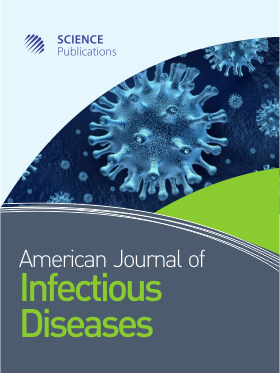Implementation of Antimicrobial Stewardship Program During COVID-19 Era: Cost Effectiveness and Mortality Rates
- 1 Department of Infectious Disease Consultant, Ibrahim Bin Hamad Obaidullah Hospital, Ras al Khaimah, United Arab Emirates
- 2 Department of Nephrology, Faculty of Medicine, Ibrahim Bin Hamad Hospital, United Arab Emirates
- 3 Department of Pharmacy, Ibrahim Bin Hamad Hospital, United Arab Emirates
Abstract
The growing spread of antimicrobial resistance is a major problem on a global level that has provoked several health and government organizations to call for action to counteract the problem. The frequent misuse of antibiotics is prevalent within hospital settings, especially during the COVID-19 era. The introduction of antibiotic stewardship initiatives has demonstrated the capability to decrease both unwarranted antibiotic consumption and the prevalence of drug-resistant microbes. Educating individuals is a pivotal element of such programs. Nevertheless, the impact of educational efforts targeting appropriate antibiotic usage has yet to be thoroughly evaluated. Ibrahim Bin Hamad Obaidullah Hospital (IBHOH) and Old Geriatric Hospital (OGH) in Ras Al Khaimah, UAE, are 250-bed secondary hospitals managed by Emirates Health Services (EHS). We classify antimicrobial agents as "controlled" or "uncontrolled." Controlled agents require approval from an Infectious Diseases (ID) consultant and clinical pharmacist and a web-based antimicrobial control system is used for this purpose. The Antimicrobial Stewardship Program (ASP) was implemented starting in October 2021 the ASP team reviews cases based on the "5 Rs" principle, records their decisions in the hospital's Electronic Medical Record (EMR) and discontinues controlled antimicrobial medication if disapproved within 48 h. Uncontrolled agents do not require ID physician approval. The consumption of antibiotics during the Pre-implementation period (period 1) from 1 April 2021 to 30 September 2021 and the post-implementation period (period 2) from 1 October 2021 to 30 March 2022 was recorded. The need for individual informed consent was waived for this study as it was considered a surveillance activity. Statistical analysis involved the use of the student’s t-test for parametric data and either the chi-square test or Fisher's exact test for nonparametric data, as deemed appropriate. Significance was established when the p-value was less than 0.05. These analyses were conducted using MedCalc® version 12.3.0, developed by MedCalc software in Mariakerke, Belgium. A total of 1583 patients were admitted in the pre-implementation period compared to 2718 patients admitted in the post-implementation period. During the pre-implementation period, 118 patients died compared to 103 patients who died in the post-implementation period. Compared with the pre-implementation period, there was a significant decrease of more than 69% in total antimicrobial consumption with a more than 75% reduction in controlled antibiotic consumption, specifically colistin, linezolid and meropenem. There was a significant reduction in patient mortality between the pre-implementation period and the post-implementation period (p<0.0001) A focused ASP program is effective in controlling the use of controlled antimicrobial agents, reducing hospital mortality. minimizing financial burden and promoting cost-effectiveness.
DOI: https://doi.org/10.3844/ajidsp.2023.56.62

- 4,330 Views
- 2,233 Downloads
- 1 Citations
Download
Keywords
- Antimicrobial Stewardship
- Antimicrobial Resistance
- Controlled Antimicrobial Use
- COVID-19
